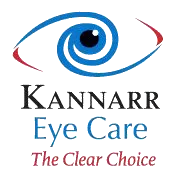
Do You Have Trouble Seeing While Driving at Night?
No matter what your age, night driving can be a little challenging, whether you're driving around the corner or across the country. Low lighting, glare, and other factors may make it difficult to see clearly and react quickly to hazards.
Why Driving Is Harder at Night
Your ability to drive safely at night may be affected by:
- Availability of Street Lights. It's obviously more difficult to see in areas that aren't well lit. UK researchers discovered that injury severity increased by almost three times if an accident occurred on a road that had no lighting.
- Glare. Glare, depending on the amount, can be a minor annoyance and or may make it impossible to see. You may experience more problems with glare from oncoming headlights as you get older.
- Headlight and Windshield Problems. Dirty windshields and hazy or misaligned headlights can contribute to night vision problems.
- Age-Related Vision Changes. In addition to trouble handling glare, natural changes in your vision related to aging may make night driving harder. As you get older, the muscles that control your pupil weaken, and the pupil becomes a little smaller. This means less light enters your eyes when it's dark. Rod cells also decline as you get older. These photoreceptor cells, located in the retina, are essential for good night vision.
- Eye Diseases and Conditions. You may notice problems with glare and see halos around lights at night if you have cataracts. Cataracts occur when the clear lenses inside your eyes become cloudy. Other eye diseases and conditions that may affect night driving include macular degeneration, vitamin A deficiency, glaucoma, and retinal diseases.
- Dry Eyes. Glare may seem worse if your eyes are too dry.
What You Can Do if You Have Trouble Driving at Night
Taking a few of these steps can help you drive safely:
- Avoid Looking Directly at Lights. Minimize the effects of glare by shifting your gaze slightly to the side when oncoming cars come close to you.
- Get Rid of Haze on Your Headlights. Discolorations on plastic headlight coverings can dim your headlights, making it difficult to see at night. If cleaning doesn't clear the headlight covers, buy new ones.
- Realign Your Headlights: It's difficult to see the road ahead of you if your headlights aren't properly aligned. The next time you visit a mechanic, request to have your headlight alignment checked.
- Do a Little Cleaning. Keeping headlights and your windshield clean will make it easier to find your exit or spot an obstruction in the road.
- Keep Your Eyes Moist. Use artificial tears to lubricate your eyes if you have dry eyes. Blink more often to spread tears across your eyes.
- Reduce Your Speed. Slow down if you're having trouble seeing. Decreasing your speed is a simple way to ensure that you reach your destination safely.
- Drive During the Day if You Have Difficulty Seeing at Night. It's best to limit long trips, or even short ones, to the daylight hours if it's very difficult to see at night.
- Visit Your Optometrist. If you've noticed that it's harder to see at night lately, it's a good idea to visit your eye doctor. Your optometrist can determine if the problem is caused by natural aging changes or eye diseases and conditions, like cataracts or glaucoma. If you do have a vision problem, your optometrist can recommend treatments or strategies that may help.
Are you concerned about your night driving ability? Call our office to schedule an appointment.
Sources:
